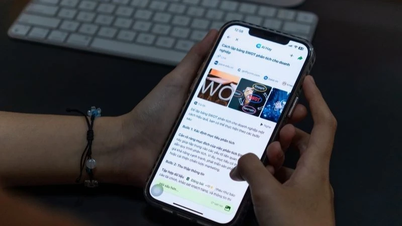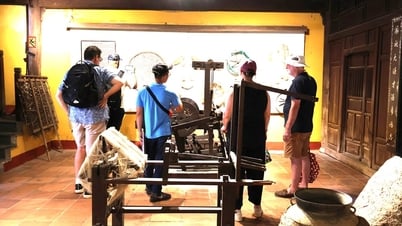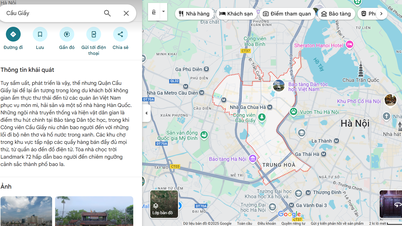
When we think about what makes an audiobook memorable, it's always the human moments: the gasp of a tear, or the words spoken with a genuine smile.
Melbourne-based actor and audiobook reader Annabelle Tudor says it's our human instinct for storytelling that makes audiobook reading such a primal and valuable skill. “Our voices reflect our emotions so easily,” she says.
But as an art form, it may be under threat. In May, Audible, the audiobook company owned by Amazon, announced that it would allow authors and publishers to choose from more than 100 AI-generated voices to read audiobooks in English, Spanish, French and Italian. AI-powered audiobook translation is also expected to launch later this year—a development that has both sparked criticism and curiosity in the publishing industry.
In Australia – where there are fewer audiobook production companies and budding actors like Tudor rely on the work to make ends meet – concerns about job losses, transparency and quality are growing.
While Tudor, who has read 48 books, isn't convinced AI can do what she does, she's concerned that poor quality could turn the public away from the format.
Audiobook boom
According to NielsenIQ's Bookdata 2024 report, more than half of Australian audiobook listeners have increased their listening time in the past five years. Globally, audiobook sales in the US are set to increase by 13% from 2023 to 2024; in the UK, audiobook sales are set to hit a new high of £268 million, up 31% from 2023, according to the British Publishers Association.
As demand surged, companies sought to produce them faster and cheaper. In January 2023, Apple introduced a new audiobook catalog with AI-generated voices. Later that year, Amazon allowed self-published authors in the US with Kindle books to convert their ebooks into audiobooks using AI “virtual voice” technology—and tens of thousands of computer-generated audiobooks are now distributed through Audible.
Spotify also announced in February that it will accept AI-read audiobooks, aiming to “lower the barrier to entry” for authors who want to reach more readers. Audible says its goal is similar: to complement, not replace, human voices, allowing more authors and titles to reach a wider audience. In the US, Audible is also testing a voice-cloning feature that lets readers create versions of their own voices to expand its ability to produce high-quality audiobooks.
“In 2023 and 2024, Audible Studios will hire more readers than ever before,” an Audible attendee told the Guardian. “We continue to receive requests from authors who want to bring their work to audio, reaching new audiences in multiple languages.”
But robot voices will always be cheaper than human voices — and voiceover and publishing professionals worry that the AI trend will threaten their jobs.
Mass production or quality assurance?
Dorje Swallow's audiobook career took off after he voiced novels by Australian best-selling crime author Chris Hammer, of which he has read around 70. Swallow says AI audiobooks are a tool for people who “don't understand the value, the techniques, the skills” required to create a quality audiobook.
“We've worked so hard and sacrificed so much to get to where we are today, and to think that you can just push a button and get something equivalent, or good enough - that's ridiculous,” he said.
Simon Kennedy, president of the Australian Voice Actors Guild, says there has long been a debate about how many audiobook readers should be paid. It often takes actors two or three times as long to complete an hour of audiobook, not to mention the time it takes to read ahead to understand the content and characters. “In my opinion, using AI voices is prioritizing quantity over quality – and it cheapens the process,” he says.
Kennedy founded the Australian Voice Actors Association in 2024 to address the threat of AI replacement. In a report to a parliamentary committee last year, the organization said 5,000 voice acting jobs in Australia were at risk.
“If you just want a flat, monotone voice from beginning to end and call it 'high quality,' that's fine,” he says. “But if you want a story that's engaging, that's compelling, that keeps you on the edge of your seat—don't expect AI to give you that.”
This year, Hannah Kent, the acclaimed author of Burial Rites and Devotion, was among several Australian writers shocked to discover that her work had been pirated to train Meta's AI system. She said her initial reaction to AI invading the creative space was usually “outrage and protest,” but she was also interested by Audible's announcement—especially its plans to test AI translations into other languages.
“I think it's clear to everyone that the main reason for using AI is to reduce costs, and that will make things cheap — both literally and creatively, meaning we no longer honor the spirit of storytelling and artistic inspiration as before,” Kent shared.
Tudor and Swallow believe it will be difficult for big companies to completely replace human voices, partly because many Australian authors will resist it.
But whether listeners can actually tell the difference remains an open question.
(According to The Guardian)
Source: https://vietnamnet.vn/noi-lo-ai-lam-giam-chat-luong-sach-noi-2419249.html





































































































Comment (0)